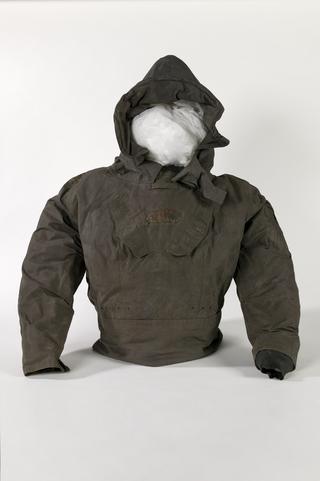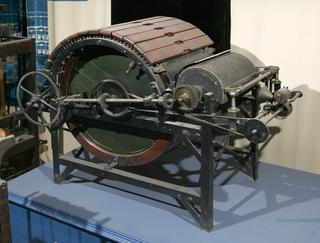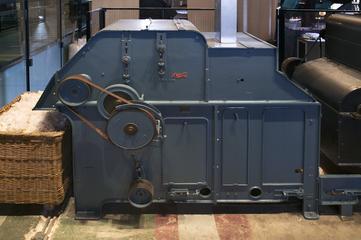
Prototype Terylene Nightdress
- Made:
- 1948-1950 in Manchester




























Prototype Terylene nightdress, made by ICI, Manchester, 1948-1950.
In 1941 chemists John Rex Whinfield and James Tennant Dickson discovered polyethylene terephthalate (PET), Britain’s first synthetic fibre. PET was developed and commercialised by Imperial Chemical Industries. This nightdress is one of the first garments woven by ICI from Terylene. It dates from 1948-1950 and is a prototype developed by ICI and not a commercially available item. Clothes made from synthetic fibres were appealing, being hard-wearing, quick-drying and crease-resistant. At a time when clothes were still generally very expensive, Terylene quickly found public favour as an alternative to wool and cotton. The development of artificial fibres led to a massive change in the textiles industry globally and represents an attempt by the British Industry to diversify and remain competitive with other centres of manufacture. Once heralded as wonder materials, man-made textiles have left us with a damaging environmental legacy: polluted water supplies and widely dispersed microplastics.
Details
- Category:
- Textile Industry
- Object Number:
- Y2006.21
- Materials:
- Terylene
- Measurements:
-
overall (at hem): 1157 mm x 692 mm
width at waist: 330 mm
width at arm holes: 405 mm
collar: 455 mm
inside neck: 235 mm
arm holes: 250 mm
- type:
- nightdress




